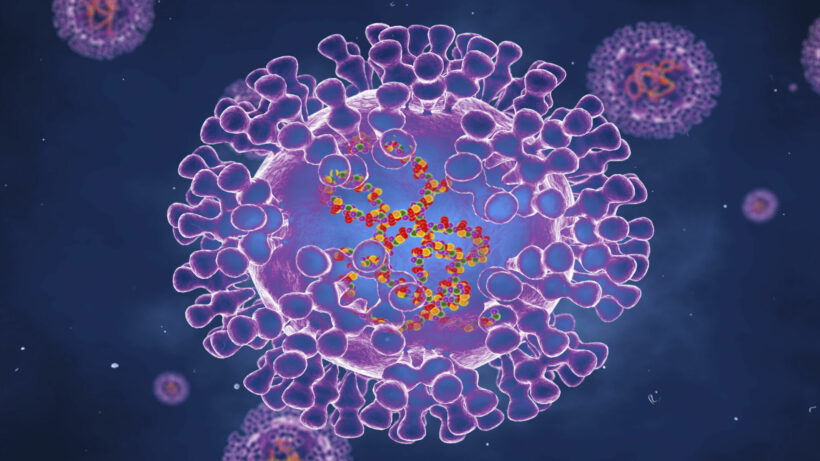Thai university researchers test wastewater for monkeypox at Bangkok airport

Sewage at Bangkok’s Suvarnabhumi Airport is being tested for the monkeypox virus by researchers from Naresuan University in the northern province of Phitsanulok. The tests can detect traces of the virus in wastewater immediately – even before the infected person begins to show symptoms – and could be used as a “budget surveillance measure” to catch and control local outbreaks early on.
Authorities are ramping up monkeypox prevention measures since Thailand’s recorded its first case of the virus in Phuket last week and since the World Health Organisation declared the monkeypox outbreak a “global health emergency” on Saturday after 16,000 cases were recorded in 75 countries.
According to research, the monkeypox virus can be detected in feces between 7 – 14 days of contracting the virus, often before the infected person begins to show symptoms. Therefore, testing wastewater could help to locate and control the disease before an outbreak occurs.
Dr Thanaphon Penrat from the Ministry of Higher Education, Science and Research Innovation said the idea is not only preventative but cost-effective…
“Monkeypox does not spread easily but has a fatality rate ranging between 1-10%. Testing wastewater for traces of monkeypox at airports and tourist destinations is the cheapest way of finding early-warning signs of monkeypox outbreaks.”
Testing wastewater could be a sensible way to screen tourists arriving in Thailand for monkeypox instead of testing every person who comes through the airport. Introducing pre-arrival or on-arrival monkeypox testing for individual arrivals could be catastrophic for Thailand’s tourism industry, which has only just started to recover since the removal of Covid-19 related entry requirements.
Dr. Thanaphon would like to stress that monkeypox cannot be contracted through wastewater, only through close contact with an infected person. Symptoms include fever, severe headache, muscle aches, low energy, swollen lymph nodes, skin rashes, and lesions.
Thailand’s Department of Medical Sciences (DMS) is in the process of developing the monkeypox virus in a laboratory to explore the possibility of developing a vaccine against the virus. If a monkeypox outbreak occurs in Thailand and the ministry cannot procure newly made vaccines in time, Thai people could be vaccinated with smallpox vaccines produced over 40 years ago instead.
Thailand has a stockpile of smallpox vaccines produced in 1979 and 1980 which are still safe to use and 85% effective against monkeypox, according to the DMS.
SOURCE: Thai PBS
Latest Thailand News
Follow The Thaiger on Google News:


























